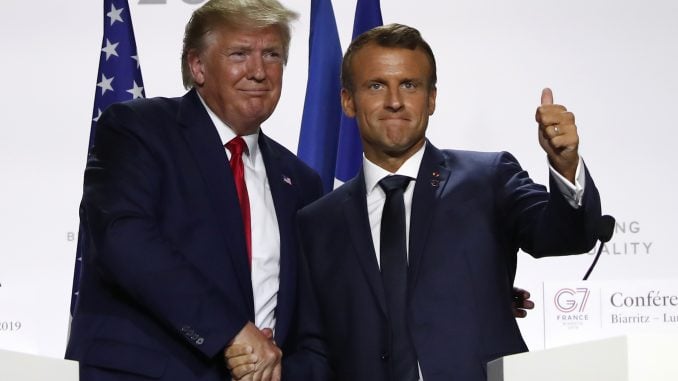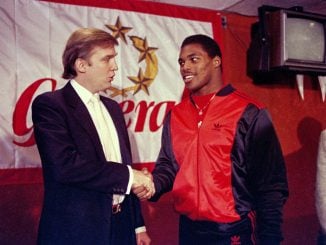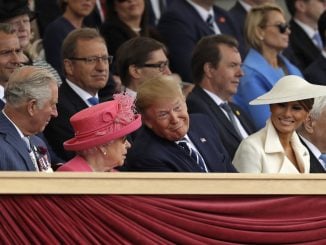
BIARRITZ, FRANCE — President Donald Trump’s takeaway message from the Group of Seven summit in France was “unity.”
During this year’s gathering of leaders of the world’s wealthiest democracies, Trump went to great lengths to portray it as something of a lovefest, papering over significant disagreements on major issues.
“If there was any word for this particular meeting of seven very important countries, it was unity,” Trump said at a news conference Monday closing out the two-day gathering in the French resort of Biarritz.
“We got along great,” he said. “We got along great.”
French President Emmanuel Macron, the summit host, scrapped the annual practice of issuing a lengthy joint statement, or communique, at the summit’s conclusion.
The document typically spells out the consensus that leaders have reached on issues on the summit agenda and provides a roadmap for how they plan to tackle them.
Instead, the leaders issued a final “declaration” that began, “The G7 leaders wish to emphasize their great unity and the positive spirit of their debates.”
Macron also said that the G-7 leaders were “really keen on ways to convey a positive and joint message following our discussions.”
The French leader stressed that everyone had worked “together, hand in hand, with President Trump over these two days.”
Trump came under pressure to end his lengthy trade dispute with China that is hurting other nations as well.
Macron said the dispute had served to “create uncertainty” that is “bad for the world economy.”
During the summit, Trump and Japanese Prime Minister Shinzo Abe announced an agreement in principle on agriculture, industrial tariffs and digital trade that would open Japanese markets to an additional $7 billion in U.S. products. Japan is the fourth-largest agricultural export market for the US buying $12.9 billion worth of food products in 2018.
The new agreement would allow “hundreds of millions of dollars of corn” exports to Japan, said President Trump which could put China in a defensive posture since they have failed to abide by previous commitments to purchase more American corn. In return, the Japanese would avoid higher tariffs on Japanese automobiles exported to the US.
With respect to Russia, Trump said he would like to see Russia re-admitted to the club. The former G-8 kicked Russia out after President Vladimir Putin annexed the Crimean Peninsula in 2014.
Trump said Monday he’d prefer Russia be “inside the tent” rather than outside since so many of the issues the leaders discussed involved Russia.
Other members of the Group of Seven besides France, Canada, Italy and the U.S. are Britain, Germany and Japan.
Canada’s Trudeau told reporters he had privately aired his objection to Russian readmittance.
“Russia has yet to change the behavior that led to its expulsion in 2014, and therefore should not be allowed back into the G-7,” he said at a news conference.
Trump also claimed that “great unity” existed on Iran, restating his long-held views about the country, not universally shared by other leaders.
France, Germany and other G-7 members are unhappy that Trump withdrew the U.S. from a 2015 international pact that eased sanctions on Iran in exchange for the Iranians agreeing to limit their nuclear program.
Trump said the biggest conclusion the leaders reached was that Iran “can’t have nuclear weapons.”
Asked about his efforts to ensure that fighters for the Islamic State group be returned to their home countries across Europe rather than housed by the United States, Trump said during a meeting with German Chancellor Angela Merkel that the G-7 leaders had “a pretty good meeting.” But then he allowed that they had “not reached a total conclusion.”
“It’s unfair for the United States to take them, because they didn’t come from the United States,” he complained.
Macron flicked at the challenges of smoothing over differences by reaching back in history.
Seeking to justify the role of mediator between Iran and the United States that Macron is carving out, the French leader quoted one of his predecessors, World War II hero Gen. Charles de Gaulle, who said, “Diplomacy is trying to hold together broken windows.”



